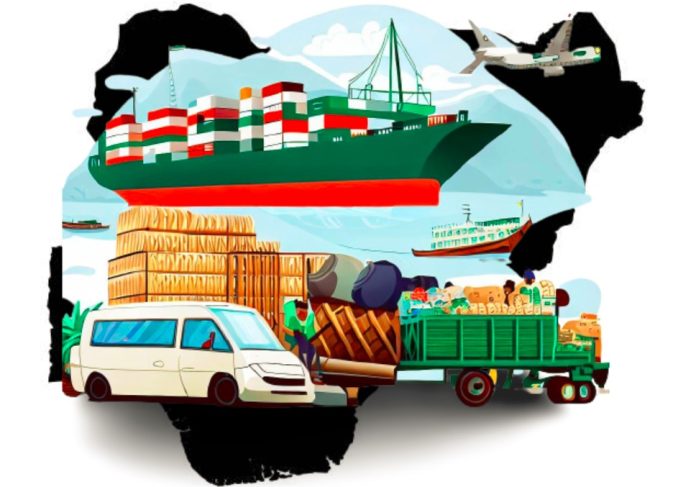News in brief: Nigeria agricultural sector has a negative foreign trade balance, importing more than it exports. The lack of value addition to agricultural products is contributing to this persistent trend.
According to Nigeria’s latest foreign trade statistics report, the agricultural sector continues to show a negative trade balance. A negative foreign trade balance simply means that a country is importing more than it is exporting.
In the first quarter of 2023, Nigeria exported a total of â¦279.6 billion worth of agricultural products while it imported goods valued at â¦471.4 billion. The trend has remained the same for the pas four quarters of 2022, which we examined. Also, on the annual level, the country’s agricultural imports has surpassed its exports for the past four consecutive years as well.

Looking at the entire foreign trade statistics as a whole, it appears that the agricultural sector has found it impossible to escape its chains. For example, the overall foreign trade balance is positive as it was in the previous quarter, Q4 2022.
Of course, both negative and positive trade balances can have multiple translations and does not necessarily really highlight if a country’s economy is doing well or not. However, further insight from the trade statistics shows just how poorly the agricultural sector is fairing, especially in value addition.
Value addition continues to plague Nigeria agricultural exports
For Q1 2023, Nigeria exported agricultural products like superior quality Cocoa beans, Sesamum seeds, Cashew nuts in shell, Soya beans (excluding seeds) and others. The top five exports in this category accounted for â¦221.6 billion of the sector’s total export. Meanwhile, the top agricultural import for the duration under consideration was durum wheat, which contributed â¦249.2 billion to the total export.
The difference in these products is clear in the distinction that the imported Durum Wheat are not in seeds but have been processed into flour or semolina. However, the exported products are still in their raw form or at best, they have been hand-picked to make them more valuable.
Without adding value to agricultural produce, the sector’s export will continue to trail its imports.



